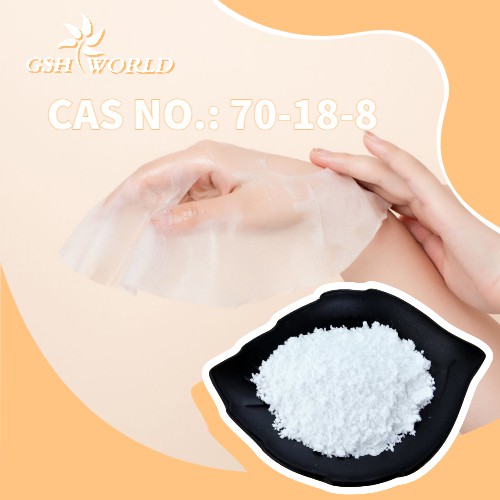Glutathione is a naturally occurring compound found in the body. It is an antioxidant, which means it helps protect cells from damage caused by free radicals. Free radicals are unstable molecules that can damage cells, leading to premature aging and other health problems.
Glutathione is also involved in a number of other important bodily functions, including detoxification, immune system function, and skin health. In recent years, glutathione has become increasingly popular as a skin whitening agent.
There is some evidence to suggest that glutathione can help to lighten the skin. One study found that oral glutathione supplementation resulted in a significant decrease in melanin production in the skin. Melanin is the pigment that gives skin its color, so a decrease in melanin production can lead to lighter skin.
Another study found that topical glutathione application was effective in lightening the skin of people with melasma, a condition that causes dark patches on the skin.

If you are considering using glutathione for skin whitening, it is important to talk to your doctor first. They can help you determine if glutathione is right for you and can recommend a safe and effective dosage.
Here is a more detailed look at how glutathione works to whiten the skin:
- Glutathione inhibits tyrosinase. Tyrosinase is an enzyme that is responsible for the production of melanin. By inhibiting tyrosinase, glutathione can help to reduce melanin production and lighten the skin.
- Glutathione reduces inflammation. Inflammation can damage the skin and contribute to hyperpigmentation. Glutathione has anti-inflammatory properties, which can help to reduce inflammation and improve skin health.
- Glutathione protects the skin from damage. Free radicals can damage the skin and lead to premature aging and other skin problems. Glutathione is an antioxidant, which means it helps protect the skin from free radical damage.
If you are looking for a natural way to lighten your skin, glutathione may be a good option for you. However, it is important to talk to your doctor first to make sure it is safe for you.
If you are considering using glutathione for skin whitening, it is important to weigh the risks and benefits carefully. Talk to your doctor to make sure it is right for you.
Here are some other natural skin whitening remedies that you may want to consider:
- Vitamin C: Vitamin C is an antioxidant that can help to lighten the skin. You can get vitamin C from citrus fruits, leafy green vegetables, and tomatoes.
- Alpha-hydroxy acids (AHAs): AHAs are chemical exfoliants that can help to remove dead skin cells and reveal brighter skin. Some common AHAs include glycolic acid, lactic acid, and citric acid.
- Beta-hydroxy acids (BHAs): BHAs are oil-soluble exfoliants that can help to remove dead skin cells and clear clogged pores. Salicylic acid is a common BHA.
- Kojic acid: Kojic acid is a natural compound that can help to inhibit melanin production and lighten the skin. It is often used in skin whitening creams and lotions.
- Arbutin: Arbutin is a natural compound that is derived from bearberry and cranberry plants. It works by inhibiting tyrosinase, the enzyme responsible for melanin production.
If you are looking for a natural way to lighten your skin, there are a number of safe and effective options available to you. Talk to your doctor to find the best remedy for your individual needs.



